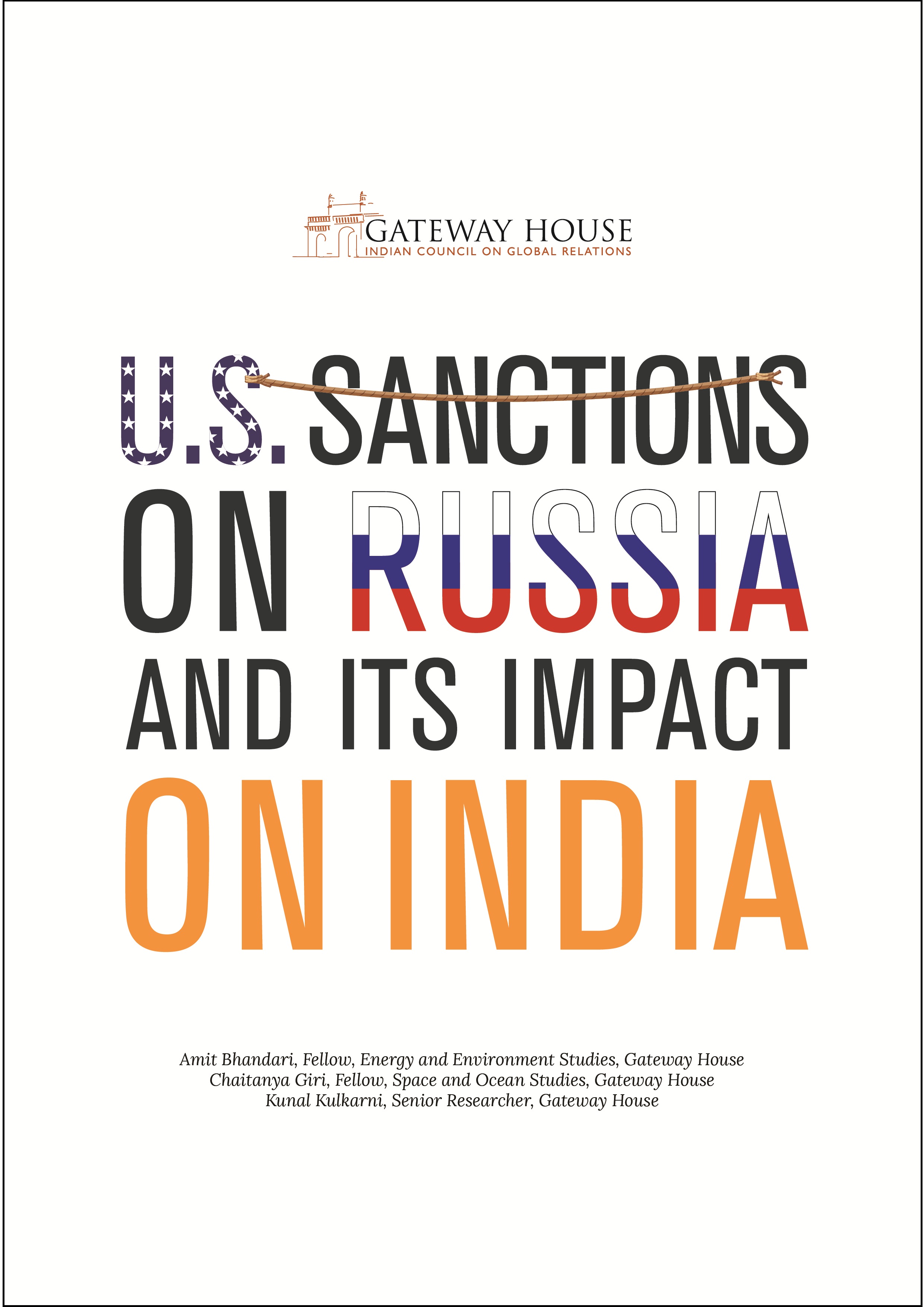Executive Summary
The U.S. and its European allies have steadily increased economic sanctions on Russia since first imposing them in March 2014. The stated purpose of sanctions is to punish Russia for its involvement in Ukraine, as well as its alleged cyber-meddling in the 2016 U.S. elections and its transfer of arms to Syria and alleged human-rights abuses, also in Syria.
While the measures initially prohibited westerners from doing business with Russians who were deemed to have undermined democratic processes in the Ukraine, the reasons given for the sanctions have grown and the list of potentially prohibited Russian partners has increased to include officials and businesses in Russia’s defence, energy and finance sectors generally. Washington has applied the sanctions flexibly, imposing them strictly in sectors where U.S. firms are major competitors of Russia and ignoring them in others where the U.S. relies on Russia. For instance, the US has exempted Russian agencies that supply titanium for Boeing’s commercial aircraft and rocket engines for NASA, where the US has no indigenous capacity.
This means individuals and businesses outside of the western alliance—including ones from India—now may face sanctions themselves if they don’t comply with the new rules.
As the economic battle mounts, India is caught in the crossfire. Russia is its long-standing strategic partner and, for the foreseeable future, its irreplaceable supplier of defence equipment and weaponry. The sanctions pose significant risks to this vital relationship. Under the sanctions, Indian companies doing business with critical Russian defense suppliers like Rosoboronexport, United Shipbuilding, and Almaz-Antey could find themselves locked out of the dollar-based global financial system controlled by the U.S. Indeed, even the activities of Indian companies in areas not directly covered by sanctions could be affected.
Given the risks, India must make some hard calls in deciding a present and future strategy. First, because the sanctions can block violators from doing business with U.S. banks, India must find ways to circumvent the dominant, dollar-based financial system – like specialist European banks with no exposure to the US market, which are willing to facilitate payments to Russia.
Second, India can deepen its investments in Russian energy and resource assets, to generate dividend income in Roubles. This will be used to pay Russia for defence hardware.
Third, there are ample precedents for introducing a dose of economic self-interest into American decision-making on the sanctions issue. India must build its profile in the U.S. market with its corporations actively creating U.S. jobs – a goodwill that can influence policy-makers to consider Indian concerns before imposing sanctions.
You can download the PDF version of this report, here.
Amit Bhandari is Fellow, Energy and Environment Studies at Gateway House
Chaitanya Giri is Fellow, Space and Ocean Studies, Gateway House
Kunal Kulkarni is currently working with the Legal Division of the Food and Agriculture Organization of the United Nations, and was a Senior Researcher at Gateway House
This report was exclusively written for Gateway House: Indian Council on Global Relations. You can read exclusive content here.
This paper was prepared for the joint RIAC-Gateway House research project on the adverse effects of the anti-Russian sanctions on India-Russia cooperation in the military and technical area. Click here to read the paper drafted by the Russian side.
For interview requests with the author, or for permission to republish, please contact outreach@gatewayhouse.in.
